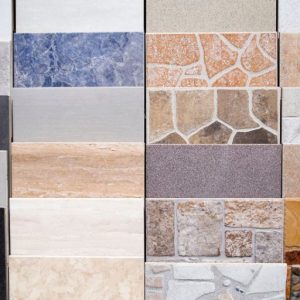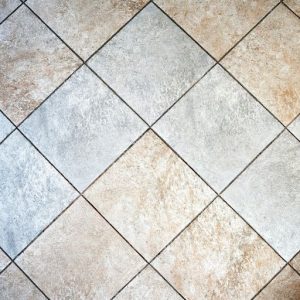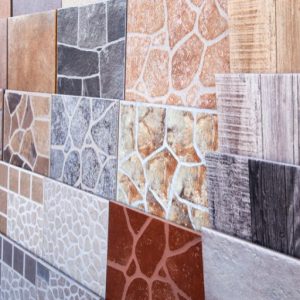Ceramic tile is a popular and versatile choice for flooring, backsplashes, and other surfaces. With its wide range of styles, colors, and finishes, ceramic tile offers endless possibilities for enhancing the aesthetic appeal of any space. In this comprehensive guide, we will explore the different types of ceramic tile available, their characteristics, and the best applications for each.
Introduction to Ceramic Tile
Ceramic tile is made from a mixture of clay, minerals, and water that is molded and then fired in a kiln at high temperatures. The firing process transforms the clay into a durable and sturdy material. Ceramic tile is known for its versatility, ease of maintenance, and resistance to stains, scratches, and moisture.
The Advantages of Ceramic Tile
Ceramic tile offers numerous advantages that make it a popular choice among homeowners and designers alike:
- Durability: Ceramic tile is highly durable and can withstand heavy foot traffic and impact. It is resistant to chipping, cracking, and wear, making it suitable for high-traffic areas such as hallways, entryways, and kitchens.
- Versatility: With a vast array of colors, patterns, shapes, and sizes, ceramic tile allows for endless design possibilities. It can be used to create various aesthetics, from sleek and modern to rustic and traditional.
- Water Resistance: Ceramic tile is inherently water-resistant, making it an excellent choice for wet areas such as bathrooms, kitchens, and laundry rooms. It is easy to clean and maintains its appearance even in moist environments.
- Low Maintenance: Ceramic tile is relatively low-maintenance, requiring only regular cleaning with mild soap and water. It does not require sealing, polishing, or refinishing, saving time and effort in maintenance routines.
- Allergy-Friendly: Ceramic tile does not harbor allergens such as dust mites, pollen, or pet dander, making it a suitable option for individuals with allergies or respiratory sensitivities.
Different Types of Ceramic Tile
Ceramic tile can be categorized into various types based on its composition, appearance, and manufacturing process. Let’s explore the most common types of ceramic tile:
1. Porcelain Tile
Porcelain tile is a type of ceramic tile with a dense and impervious composition. It is made from refined clay and fired at high temperatures, resulting in a highly durable and water-resistant product. Porcelain tile is suitable for both indoor and outdoor applications and is often used in high-traffic areas due to its exceptional strength.
2. Glazed Ceramic Tile
Glazed ceramic tile is coated with a glass-like layer called a glaze, which gives it a smooth and glossy finish. The glaze can be applied in various colors and patterns, allowing for limitless design options. Glazed ceramic tile is commonly used for backsplashes, countertops, and decorative accents.
3. Terracotta Tile
Terracotta tile is a type of ceramic tile made from natural clay. It is unglazed and has a characteristic reddish-brown color. Terracotta tile provides a warm and rustic look, making it ideal for Mediterranean or traditional-style interiors. It is recommended for low-traffic areas as it is more prone to stains and wear compared to glazed ceramic tile.
4. Quarry Tile
Quarry tile is a type of unglazed ceramic tile that is typically thicker and more durable than other types. It is made from natural clay and comes in earthy tones such as red, brown, or gray. Quarry tile is commonly used in commercial settings, outdoor spaces, and areas where slip resistance is a priority, such as entryways and pool decks.
5. Mosaic Tile
Mosaic tile is made up of small individual pieces called tesserae. These tesserae can be ceramic, glass, stone, or other materials. Mosaic tile allows for intricate and detailed designs, and it is often used to create decorative patterns, backsplashes, or accent walls.
Best Applications for Different Ceramic Tile Types
Each type of ceramic tile is best suited for specific applications based on its characteristics and features. Here are the recommended applications for different ceramic tile types:
- Porcelain tile: Ideal for high-traffic areas, outdoor spaces, bathrooms, and kitchens.
- Glazed ceramic tile: Suitable for backsplashes, countertops, decorative accents, and low-traffic areas.
- Terracotta tile: Recommended for interiors with a rustic or traditional aesthetic, such as living rooms or dining areas.
- Quarry tile: Perfect for commercial settings, outdoor areas, entryways, and spaces that require slip resistance.
- Mosaic tile: Used for creating intricate designs, decorative patterns, backsplashes, and accent walls.
Frequently Asked Questions
Q: Is ceramic tile suitable for a bathroom floor?
A: Yes, ceramic tile, especially porcelain tile, is an excellent choice for bathroom floors. It is water-resistant, durable, and easy to clean, making it perfect for moist environments.
Q: Can ceramic tile be installed outdoors?
A: Certain types of ceramic tile, such as porcelain and quarry tile, can be installed outdoors. These types are designed to withstand the elements and are resistant to moisture and temperature changes.
Q: How do I clean ceramic tile?
A: Regular cleaning with mild soap and water is usually sufficient for ceramic tile maintenance. Avoid using abrasive cleaners or tools that may scratch the surface. For specific stains or grout cleaning, consult the manufacturer’s recommendations or seek professional advice.
Q: Can ceramic tile be used for a kitchen backsplash?
A: Absolutely! Ceramic tile is a popular choice for kitchen backsplashes due to its versatility, durability, and wide range of design options. It adds both functionality and visual appeal to the kitchen space.
Q: Does ceramic tile fade over time?
A: Glazed ceramic tile is resistant to fading. However, prolonged exposure to direct sunlight may cause some color variation in unglazed or natural terracotta tiles.
Conclusion
Ceramic tile offers an array of options to enhance the beauty and functionality of any space. Understanding the different types of ceramic tile and their recommended applications allows you to make informed choices when selecting the perfect tile for your project. Whether you prefer the durability of porcelain, the elegance of glazed ceramic, or the rustic charm of terracotta, ceramic tile provides a versatile and reliable solution for your design needs.
Also Read this Article: A Comprehensive Guide to Porcelain Tile








1 Comment. Leave new
[…] Also Read this Article: Exploring the Different Types of Ceramic Tile […]